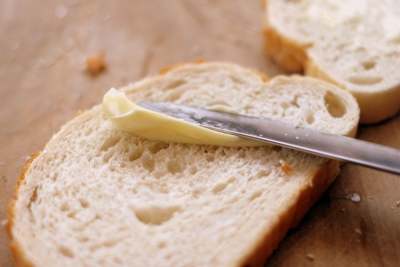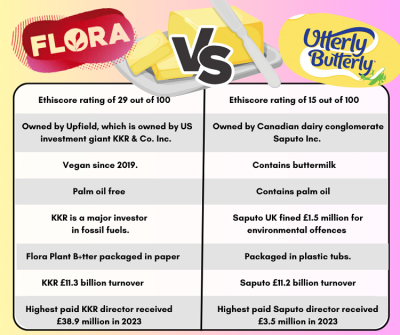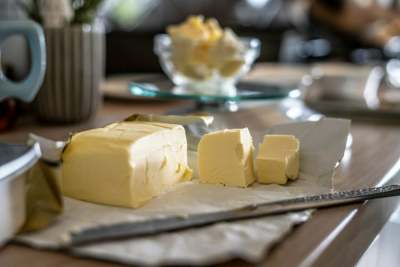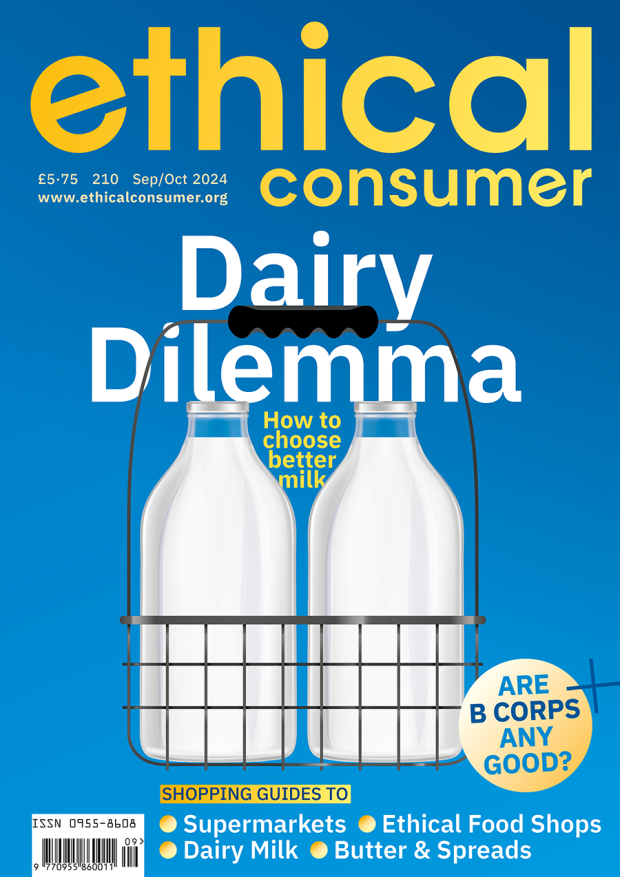This ethical shopping guide covers butter, margarine and spreads, including vegan non-dairy alternatives.
We review and rate supermarket own-brands, popular well-known brands and companies like Flora and Utterly Butterly, along with small independent vegan, vegetarian and organic dairy brands.
We look at issues including palm oil, health debates, and the expansion of plant-based alternatives.







